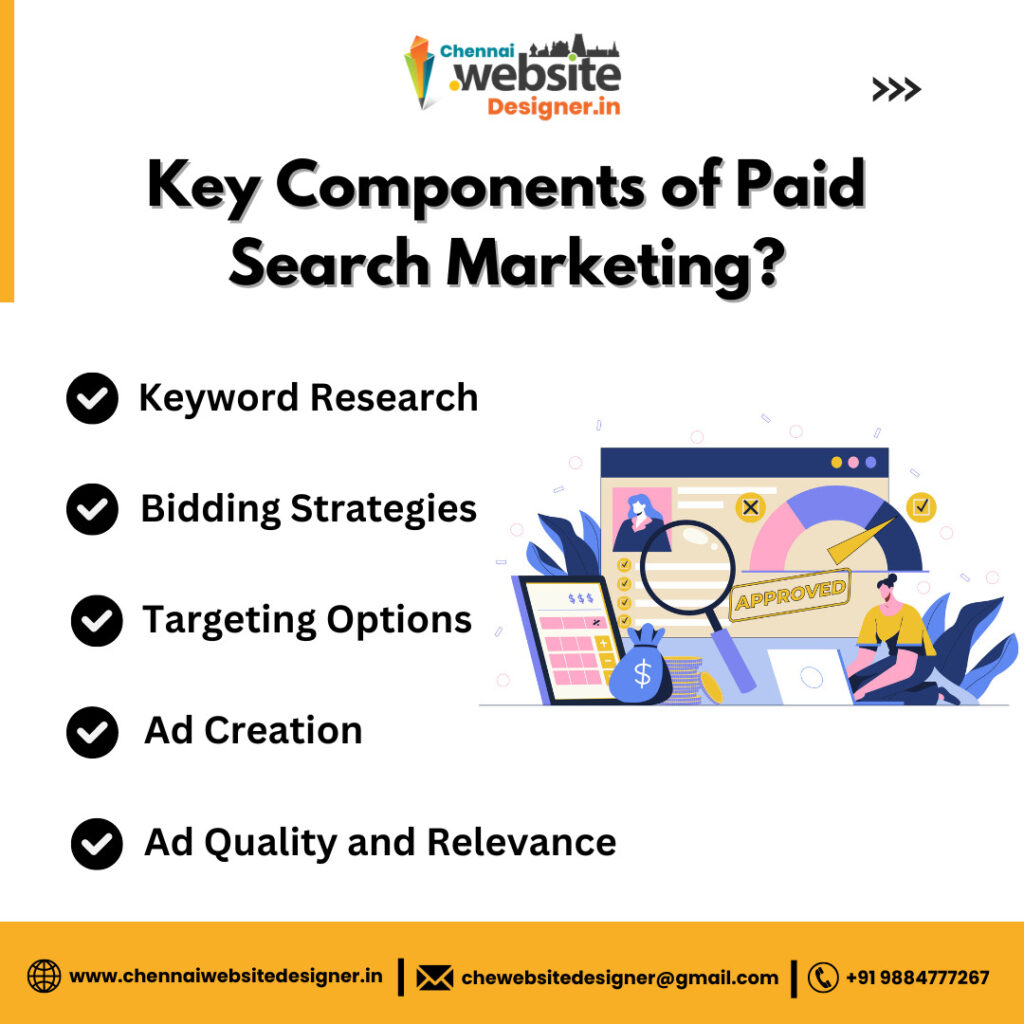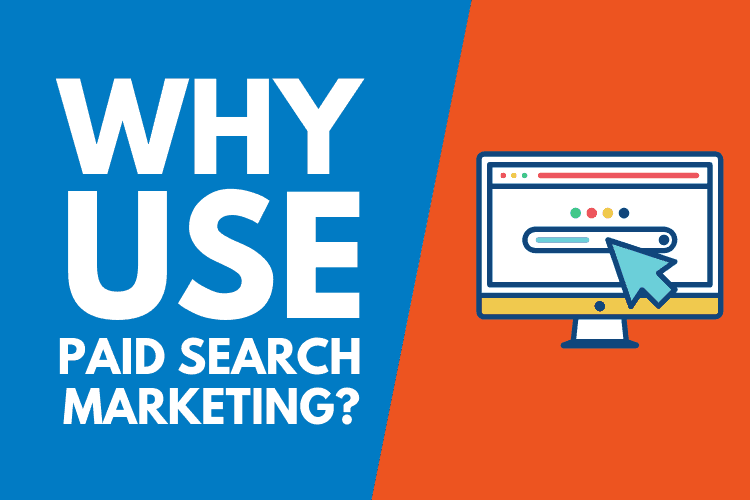What is Paid Search Marketing?
Paid Search Marketing: A form of digital advertising where businesses pay search engines like Google and Bing to display their ads prominently on search engine results pages (SERPs). These ads are typically displayed above or below organic search results and are triggered by specific keywords related to the advertiser’s products or services.

Key Components of Paid Search Marketing?
-
Keyword Research:
- Identifying and selecting the right keywords is crucial. Tools like Google Keyword Planner, Ahrefs, and SEMrush help advertisers find relevant keywords with high search volumes and reasonable competition.
- Long-tail keywords (more specific, longer phrases) often yield higher conversion rates due to their specificity.
- Keyword research is an essential part of any successful marketing strategy. It involves identifying and analyzing the words and phrases that people use when searching for products or services online. By understanding the keywords that are relevant to your business, you can optimize your website and content to rank higher in search engine results, attract more organic traffic, and ultimately increase your chances of converting visitors into customers. Conducting thorough keyword research allows you to gain insights into your target audience’s needs and preferences, and helps you tailor your marketing efforts to meet those needs effectively.
-
Ad Creation:
- Crafting compelling ad copy that includes the targeted keywords, a strong call-to-action (CTA), and relevant extensions (e.g., site links, call buttons).
- Ad formats include text ads, responsive search ads, and product listing ads.
-
Bidding Strategies:
- Determining how much to bid on each keyword. Common strategies include manual CPC (cost-per-click) bidding, automated bidding, and smart bidding, which uses machine learning to optimize for conversions.
- Budget management is essential to ensure cost-effectiveness and to avoid overspending.
-
Ad Quality and Relevance:
- Search engines use Quality Score (Google) or similar metrics to evaluate the relevance and quality of ads. Factors include click-through rate (CTR), ad relevance, and landing page experience.
- Higher quality scores lead to better ad placements and lower costs per click.
-
Targeting Options:
- Advanced targeting capabilities allow advertisers to reach specific audiences based on location, device, time of day, demographics, and user behaviors.
- Remarketing strategies can target users who have previously visited the advertiser’s website.

Trends in Paid Search Marketing for 2024
-
Artificial Intelligence and Automation:
- AI and machine learning are increasingly used for optimizing bids, creating ad copy, and personalizing ads based on user behavior and preferences.
- Automated ad campaigns, like Google’s Performance Max, use AI to manage and optimize ads across all Google inventory.
-
Voice Search Optimization:
- With the growing use of voice assistants like Alexa, Siri, and Google Assistant, optimizing for voice search becomes essential. This involves targeting conversational keywords and natural language queries.
-
Visual and Video Ads:
- The integration of visual elements in search ads, including images and videos, enhances engagement. Google’s Discovery ads and video action campaigns on YouTube are examples.
- Video ads in search results are becoming more prominent, catering to the increasing consumption of video content.
-
Privacy and Data Regulations:
- Compliance with data privacy regulations (e.g., GDPR, CCPA) affects how user data is collected and used. Transparency and user consent are critical.
- The phasing out of third-party cookies necessitates new strategies for audience targeting and tracking.
-
Paid Search Marketing Enhanced Reporting and Analytics:
- Advanced analytics tools provide deeper insights into ad performance, user behavior, and ROI.
- Multi-touch attribution models help in understanding the customer journey and the impact of different touchpoints.

Benefits of Paid Search Marketing?
- Immediate Visibility: Ads appear at the top of search results, ensuring high visibility for targeted keywords.
- Measurable Results: Detailed performance metrics allow for precise tracking of clicks, conversions, and ROI.
- Targeted Reach: Advanced targeting options ensure ads reach the most relevant audience, increasing the likelihood of conversions.
- Cost Control: Advertisers can set budgets and bid amounts to control spending and maximize returns.
Conclusion
In the realm of digital marketing strategies, paid search marketing in 2024 plays a crucial role, thanks to the influence of advanced technologies and changing user behaviors. Through the utilization of AI, prioritizing voice and video optimization, and ensuring compliance with privacy regulations, businesses can effectively employ paid search to connect with their desired audiences, enhance their visibility, and generate conversions.

Leave a Reply